To learn more about Digital Green’s AI-powered platform and how it impacts small-scale farmers in India, Ethiopia, Kenya, Nigeria and Brazil, we encourage you to sign up for our newsletter.
What works to empower women farmers?
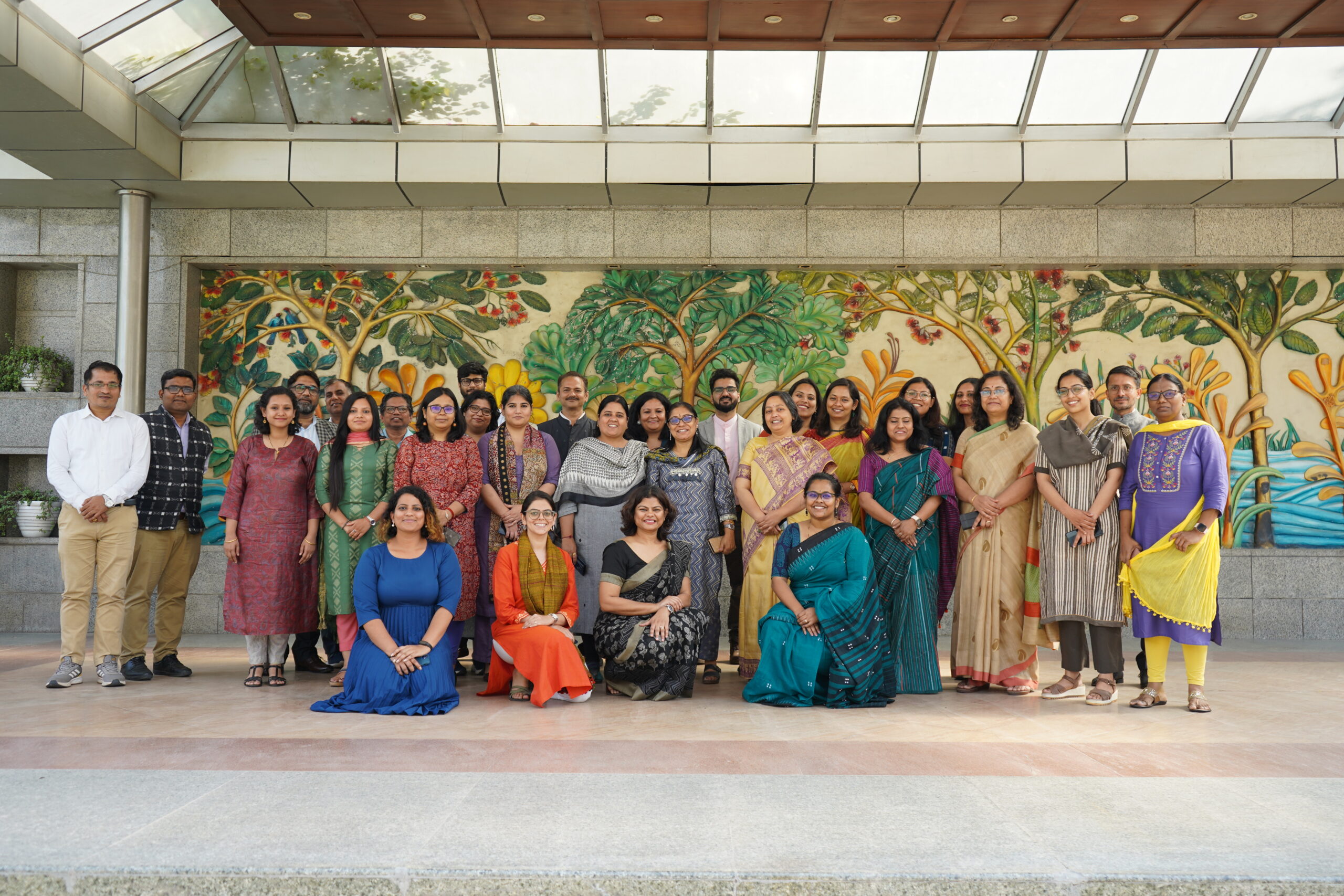
Roundtable Dialogue on Innovations and Lessons on what works to empower women farmers.
29th March 2023 | New Delhi, India
What works to empower women farmers? What are the methodologies, innovations, strategies that have worked to empower them? What are the lessons and challenges encountered in the pathway to enable women farmers to become agents of their own transformative change? Driven by these questions, in March 2023, Digital Green organized a roundtable dialogue in New Delhi; a day of deliberations with experts and development professionals from organizations that engage with women farmers. The dialogue was anchored around deconstructing ‘empowerment’ alongwith strategies, framework and pathways that various organizations have been using to empower women farmers. Additionally a session was dedicated to the discussion on digital innovations used by the participating organizations to empower women collectives.
The dialogue, organized into three thematic sessions, began with context setting by Krishnan Pallassana (Managing Director, Digital Green) with chief address by Mr. Chiranjit Singh, IFoS, Additional Secretary at the Ministry o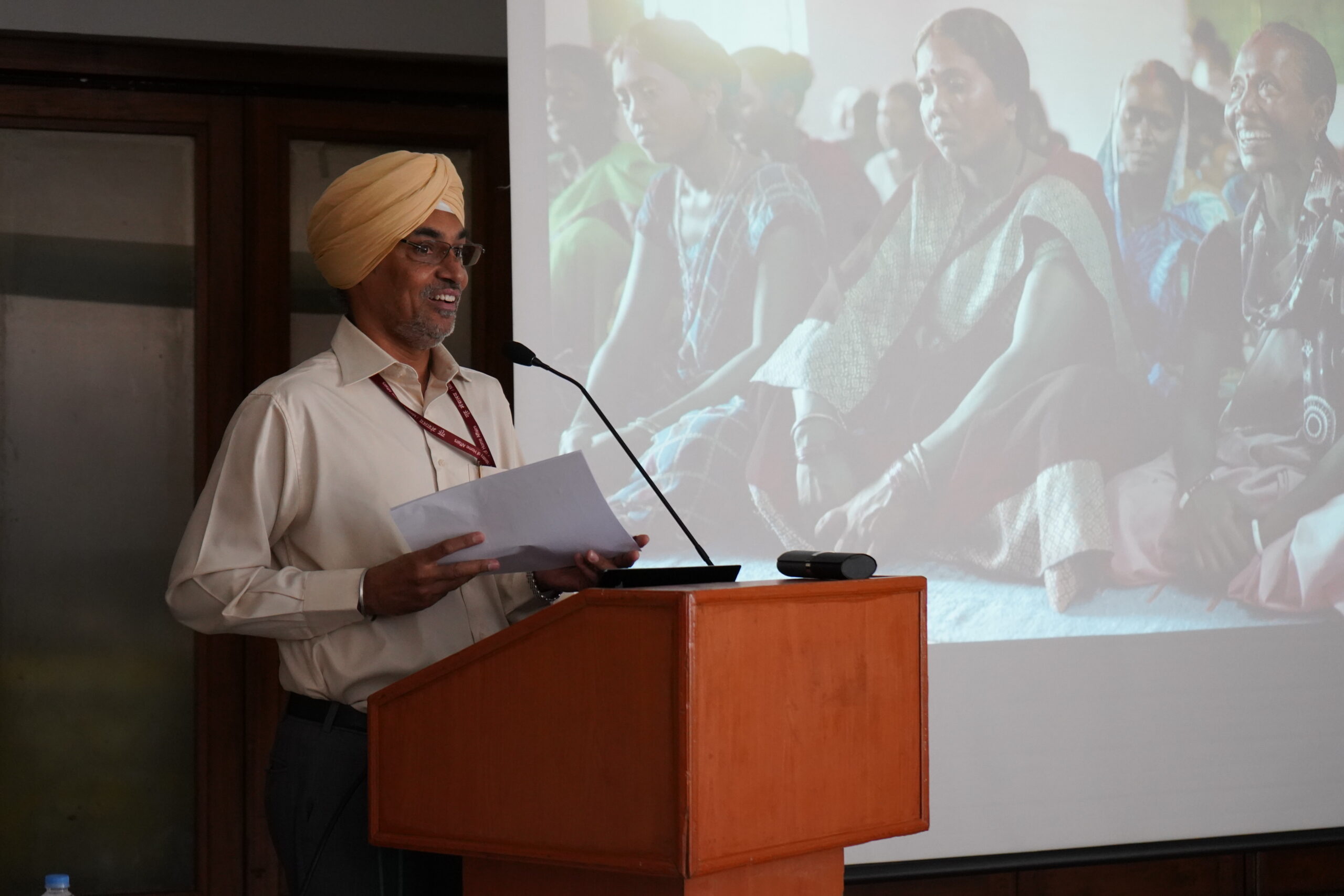 f Rural Development. Krishnan Pallassana in his welcome note emphasized on the primacy of women farmers in the agricultural ecosystem – who are responsible for ensuring employment, food and nutrition security. While Mr. Chiranjit Singh highlighted the need to contextualize and tailor solutions to build capacities of rural women; striving for innovative solutions with an intersectional lens to harness the power of social media and digital technologies to boost capacity building at scale. The speaker foregrounded the need for collaboration and convergence among ecosystem players, expressing that “the government is keen to explore and utilize the power of digital technologies to empower women farmers through the expansive network of community resource people and grassroots infrastructure.” The session concluded with a screening of a short film of women farmers (that Digital Green has been working with) elaborating on what empowerment meant for them.
f Rural Development. Krishnan Pallassana in his welcome note emphasized on the primacy of women farmers in the agricultural ecosystem – who are responsible for ensuring employment, food and nutrition security. While Mr. Chiranjit Singh highlighted the need to contextualize and tailor solutions to build capacities of rural women; striving for innovative solutions with an intersectional lens to harness the power of social media and digital technologies to boost capacity building at scale. The speaker foregrounded the need for collaboration and convergence among ecosystem players, expressing that “the government is keen to explore and utilize the power of digital technologies to empower women farmers through the expansive network of community resource people and grassroots infrastructure.” The session concluded with a screening of a short film of women farmers (that Digital Green has been working with) elaborating on what empowerment meant for them.
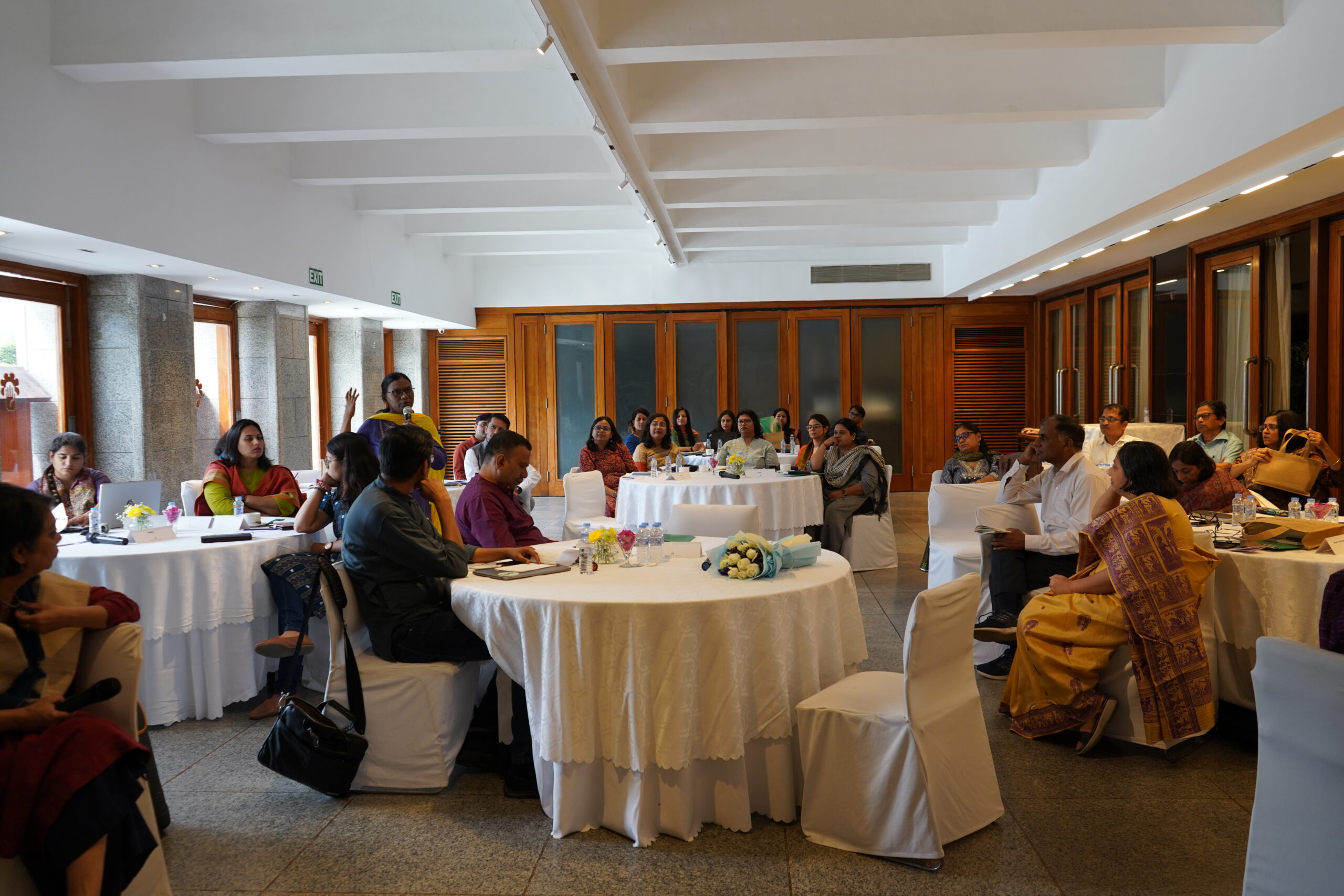 With this, the first round of deliberations were rooted in examining ‘empowerment’ from the lens of women farmers’ lived experiences. The participants explored the fluidity of the term itself and the difficulty to capture the subjective experience of being empowered. The participants underlined that women’s identities are relational and contextual, thus they should not be perceived as homogenous entities. Interventions for empowerment need to be designed to challenge gender inequities and power asymmetries, by facilitating conducive conditions for women to be able to challenge systems and structures to ensure they can thrive in both public and private spaces. With a concept as fuzzy as empowerment, the participants agreed that it presented its own set of challenges when it came to evaluation or measuring it. Thus a lot of interventions and efforts oscillate between economic development and economic empowerment.
With this, the first round of deliberations were rooted in examining ‘empowerment’ from the lens of women farmers’ lived experiences. The participants explored the fluidity of the term itself and the difficulty to capture the subjective experience of being empowered. The participants underlined that women’s identities are relational and contextual, thus they should not be perceived as homogenous entities. Interventions for empowerment need to be designed to challenge gender inequities and power asymmetries, by facilitating conducive conditions for women to be able to challenge systems and structures to ensure they can thrive in both public and private spaces. With a concept as fuzzy as empowerment, the participants agreed that it presented its own set of challenges when it came to evaluation or measuring it. Thus a lot of interventions and efforts oscillate between economic development and economic empowerment.
Another participant highlighted that empowerment, like the woman herself, is a composite of different elements, including identity, agency, autonomy, and literacy, that are critical elements in the pathway to empowerment. The discussants associated choice, negotiation, and decision-making intrinsically with empowerment. The floor agreed that empowerment could mean differently for different women – for some women taking up leadership roles could be empowering; while for another to be able to attend meetings and share their opinions could be empowering. Various organizations concluded that it would be best to continue in their attempts anchored around letting women farmers define what empowerment meant for them, while working on creating better measurement tools and program designs that truly shifts and equalizes power.
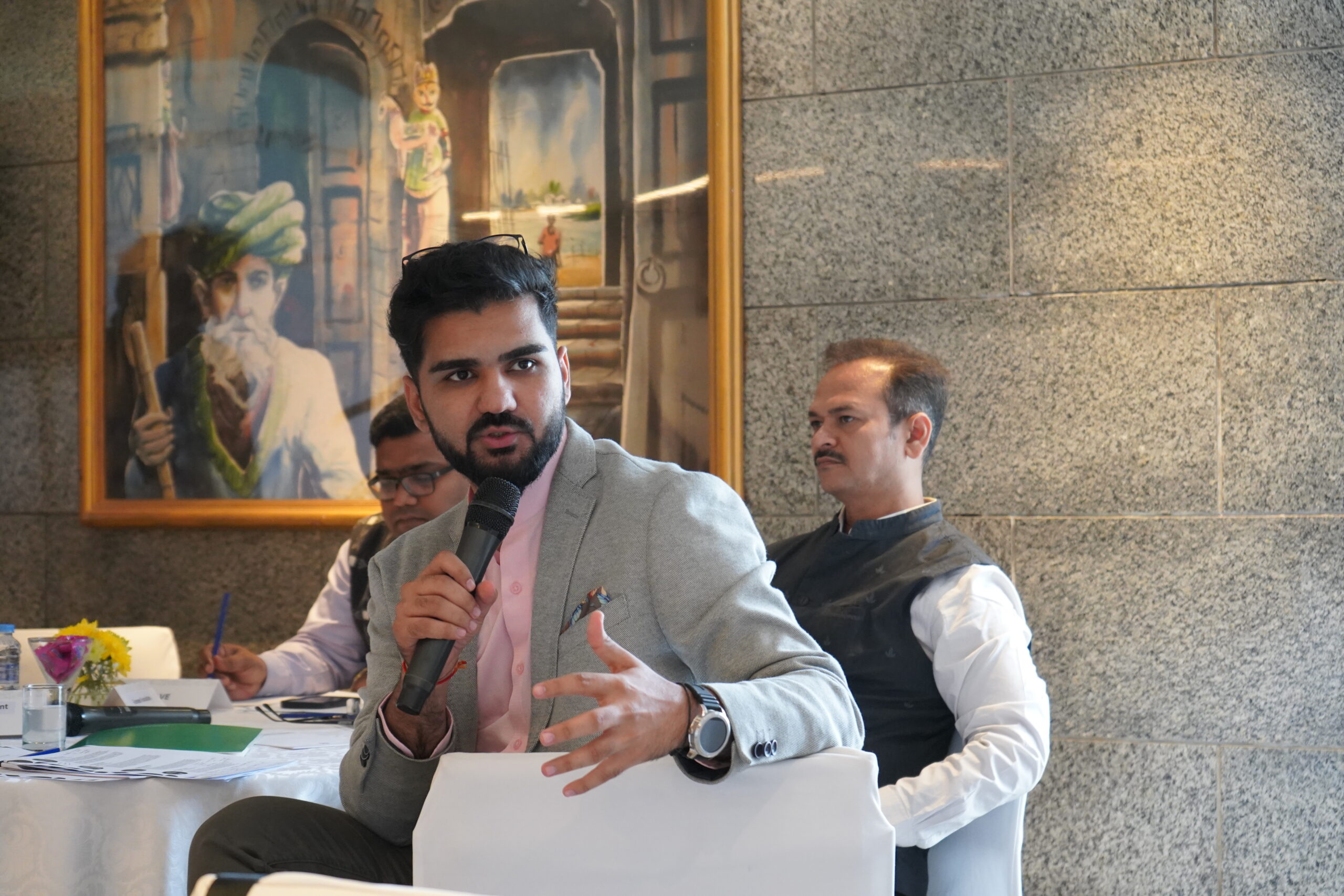 The second round table highlighted the deep and expansive work being undertaken with women farmers and women’s collectives in the realm of empowerment. The practitioners elaborated the challenges they faced while working on interventions rooted in empowerment. The challenges led the organizations to rely on economic indicators in their respective interventions. Insights from practitioners highlighted the need to build capacities of women farmers to undertake data-backed business planning and decision making as well as devise strategies to enhance collective agency and critical consciousness to scale empowerment. The floor acknowledged that the content and interventions for women farmers should be mindful of diversity in their contexts and languages with a focus on human mediated delivery while at the same time focussing on simplifying solutions and products. Further emphasis needs to be placed on closing the gender gaps in access to digital resources with creating women centered products that are conscious of women’s unique needs and capabili
The second round table highlighted the deep and expansive work being undertaken with women farmers and women’s collectives in the realm of empowerment. The practitioners elaborated the challenges they faced while working on interventions rooted in empowerment. The challenges led the organizations to rely on economic indicators in their respective interventions. Insights from practitioners highlighted the need to build capacities of women farmers to undertake data-backed business planning and decision making as well as devise strategies to enhance collective agency and critical consciousness to scale empowerment. The floor acknowledged that the content and interventions for women farmers should be mindful of diversity in their contexts and languages with a focus on human mediated delivery while at the same time focussing on simplifying solutions and products. Further emphasis needs to be placed on closing the gender gaps in access to digital resources with creating women centered products that are conscious of women’s unique needs and capabili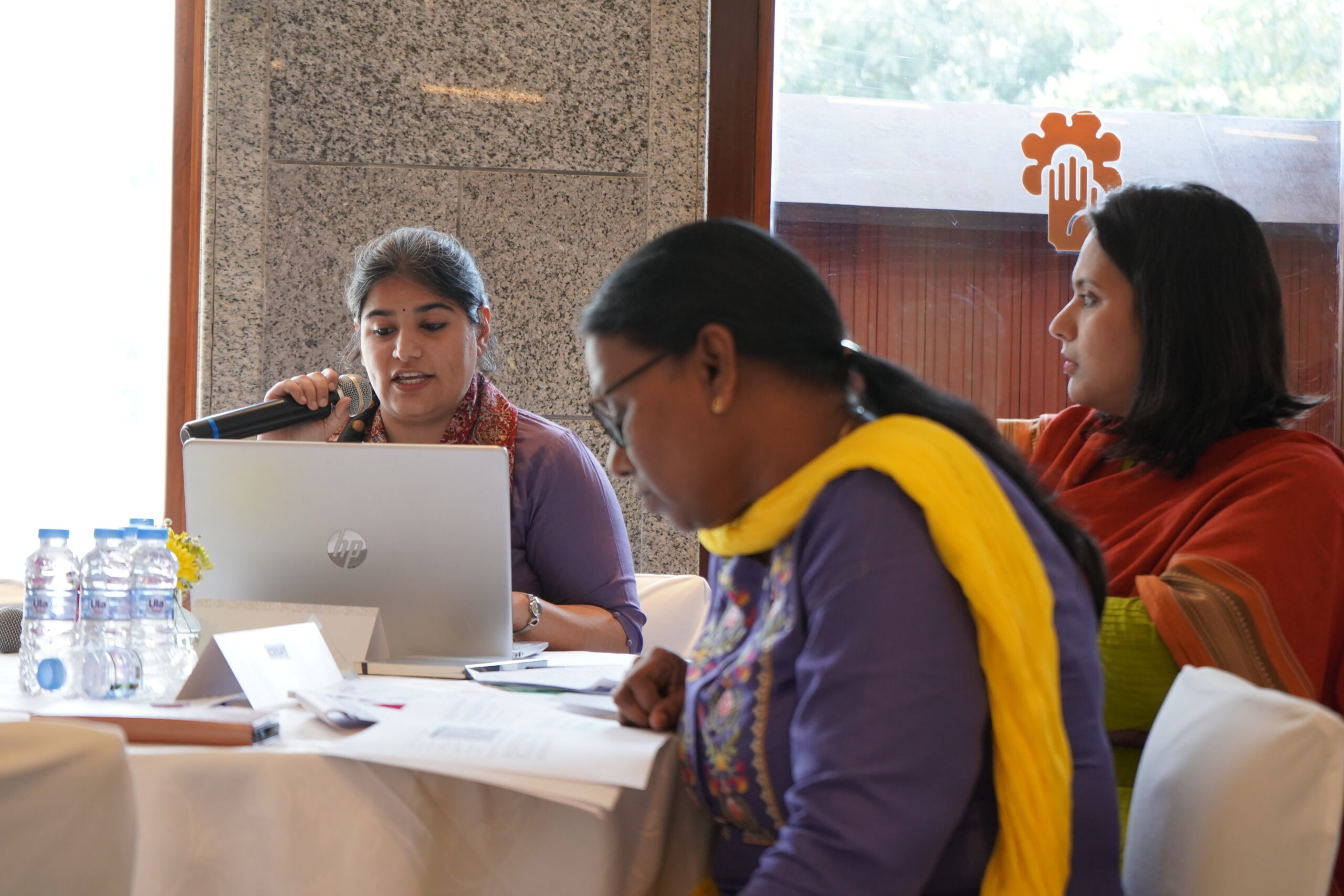 ties. Digital access is a right, and safe spaces should be created to increase technology adoption among women farmers.
ties. Digital access is a right, and safe spaces should be created to increase technology adoption among women farmers.
For the third roundtable session, research organizations such as ICRISAT, IFPRI, IRRI, and ISST deliberated on the frameworks and indicators that they have developed to measure women farmers’ economic empowerment. The panel discussed the critical need to view women farmers as a heterogenous group wherein empowerment can not be prescriptive. They acknowledged that measuring empowerment, given its complexity and subjectivity, relying only on quantitative indicators alone posed a critical challenge. The panel highlighted the use of PRO-WEAI & ANEW tools that measure empowerment through intrinsic, instrumental, and collective agency channels. The panelists emphasized the importance of robust qualitative studies to complement quantitative tools based on field experiences. The panel agreed that measuring empowerment requires a mixed-method approach that combines qualitative and ethnographic insights to strengthen quantitative indicators and provide nuanced insights.
The day concluded with an agreement that the grassroot level networks and collaborations must be tapped in to reach the last mile to provide women farmers with access to technology, resources and knowledge. This further requires a convergence among eco-systems including practitioners, experts, researcher organizations as well as private players for collaborative solutions and interventions devised for women farmers.
Digital Green envisioned this event as an ongoing co-learning space that will enable us to hold regular deep dialogues and form an expert group with like-minded organizations. These dialogues will be geared to build a shared vision and strategy for empowerment of women farmers; a space for collaborative learning to use collective power towards making a sincere shift in the lives of the women farmers.